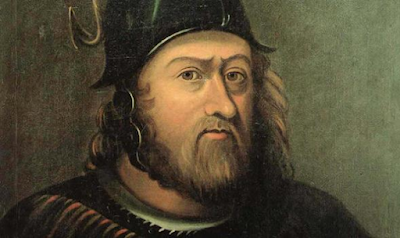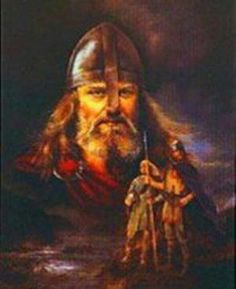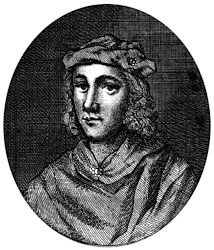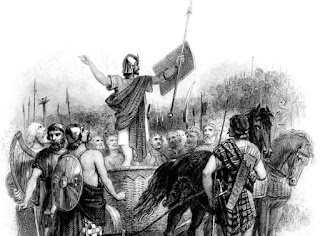William Wallace (Part 2 of 3)
Wallace
In the desperate days before John Balliol's abject submission to Edward I, the King had been deposed by that same community who had transferred his administrative powers to a council of Guardians, while permitting him the dignity of his kingly title.
Wallace continued to hope for the reinstatement of John as the rightful King of Scots, to that end, he attempted to maintain pressure attacks on the north of England, and he helped engineer the appointment of the pro-independence William Lamberton to the bishopric of St Andrews.
Herein lay the seeds of Wallace's downfall, for, in a society obsessed with strict hierarchies, a man of his comparatively humble background had no business leading armies and directing government policy. Similar obsessions paralysed most of the Scottish aristocracy who, by right, ought to have been fulfilling these functions.
There is an old story that when he assembled his army at Falkirk in July, 1298, Wallace told his men: 'I hae brocht ye to the ring, now see gif ye can dance'. But for many it proved the dance of death - the music provided by the clash of steel, the whistling of murderous Welsh arrows and the shrieks of the stricken.
Edward I was there in person to choreograph the fatal ballet. John of Fordun was the first of generations of Wallace admirers who simply could not understand how the dazzling victor of Stirling Bridge and many other encounters could lose so convincingly at Falkirk, and he attributed the disaster to none other than Robert Bruce, the future king. Every single account of the battle would soon include a fictitious episode in which Bruce and Wallace encountered one another on opposite banks of the River Carron.
When Bruce asked Wallace why he resisted the might of Edward and the will of the Scottish nobility, he resoundingly replied: "You, to whom ignominious slavery with security, is dearer than honourable liberty with danger, embrace the fortune you so much admire. I, in the country, which I have so often defended, shall live free, or freely die; nor shall my affection for it leave me, but with my last breath."
This episode and Wallace's lofty reply would project for generations of readers a picture of aristocratic baseness confronted by a kind of democratic worth – a vision, anachronistic and fabulous though it was, so appealing and so convincing as to render history irrelevant. After Falkirk, a battle which he seriously misjudged, Wallace resigned the Guardianship.











Comments
Post a Comment